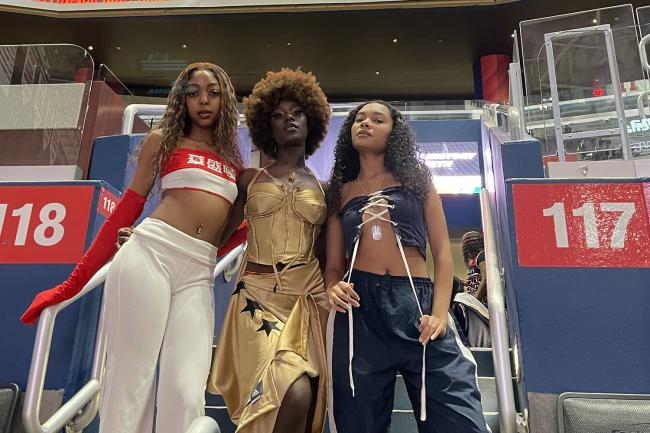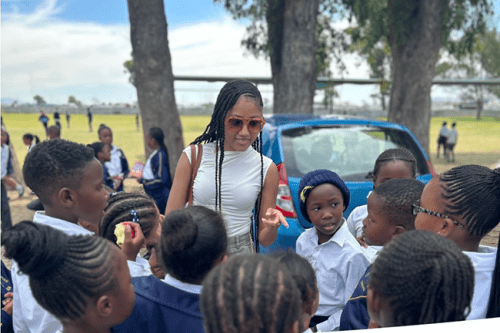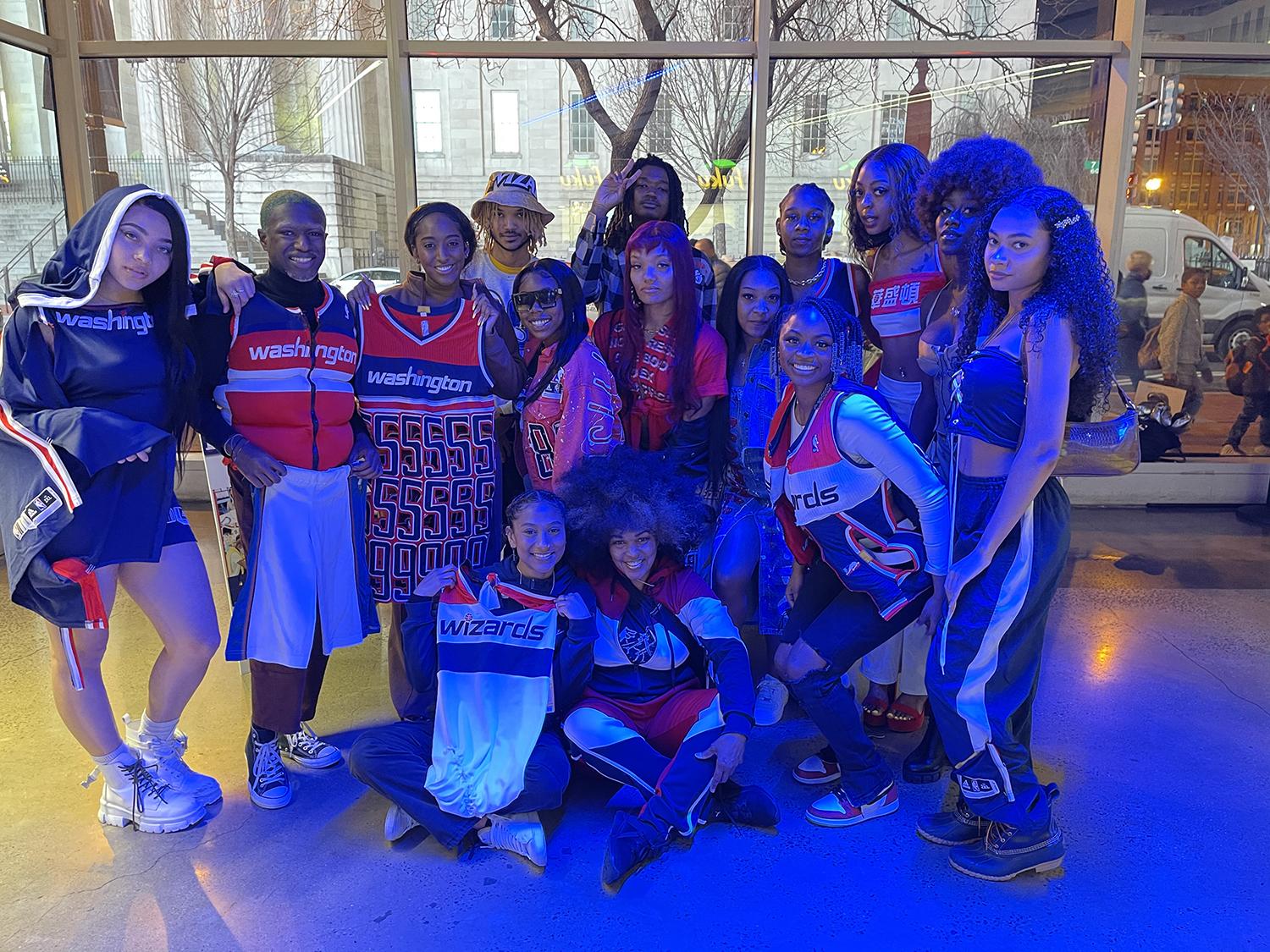
Michelle “Mikki” Taylor (MFA ’02), a master instructor in the Fashion Design Program in the Chadwick A. Boseman College of Fine Arts, has been practicing sustainability in fashion – essentially the ability to produce and create fashion without harming the environment and producing waste – before it became a trending movement.
Today, she teaches a course on sustainability and she always encourages her students to think in that manner with all their designs. “The cost in saving in materials and resources are a benefit of implementing sustainable practices while creating – zero waste, upcycling, and the incorporation of sustainable natural fibers,” she says.
With fast fashion, the cost outweighs the benefits. You aren’t looking at the massive water consumption, toxic dyes being used that are deposited in our soil, or the workforce and the electricity being used.”
Reportedly, production of a digital garment saves on average about 800 gallons of water per item (it takes about 700 gallons of water to produce a single cotton T-shirt) and the process also saves 97% on carbon dioxide versus a physical garment.
In her classes, students design digital pattern pieces on an avatar and learn about zero waste and upcycling by doing projects like the Washington Wizards Remix, where they created new garments using the NBA team’s old jerseys. The project was in conjunction with the Wizards Fashion Showcase hosted by Britt Waters that occurred earlier in the month. Monumental Sports and Entertainment Team featured a video of the students putting together the garments which was played before the game. A courtside fashion show was on the agenda, but canceled due to COVID.
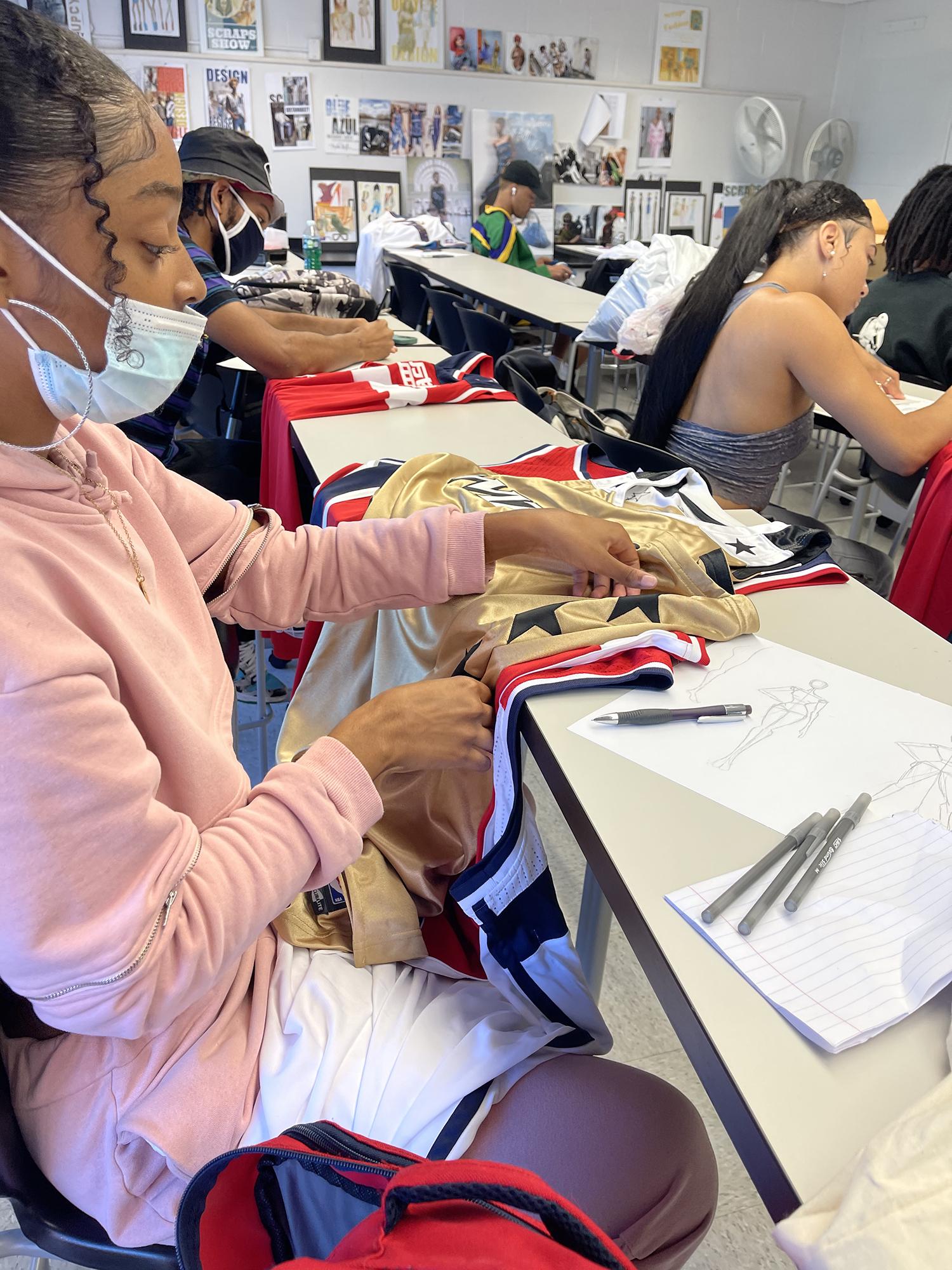
“They did an amazing job,” boasts Taylor. “Howard University has the proclivity to attract the best and the brightest. I experience that firsthand with my students.”
Although Taylor understands the desire to get the designer look for less, she prefers combing thrift stores for quality fashion gems and speaks the hard truth about fast fashion.
“With fast fashion, the cost outweighs the benefits. You aren’t looking at the massive water consumption, toxic dyes being used that are deposited in our soil, or the workforce and the electricity being used,” she says.
Luxury brands like Louis Vuitton have launched innovative virtual initiatives. This year one of Taylor’s top students, senior Kaitlyn Gilliam, was awarded a post-modern scholarship named after late Louis Vuitton creative director Virgil Abloh, to support the next generation of Black fashion industry leaders.
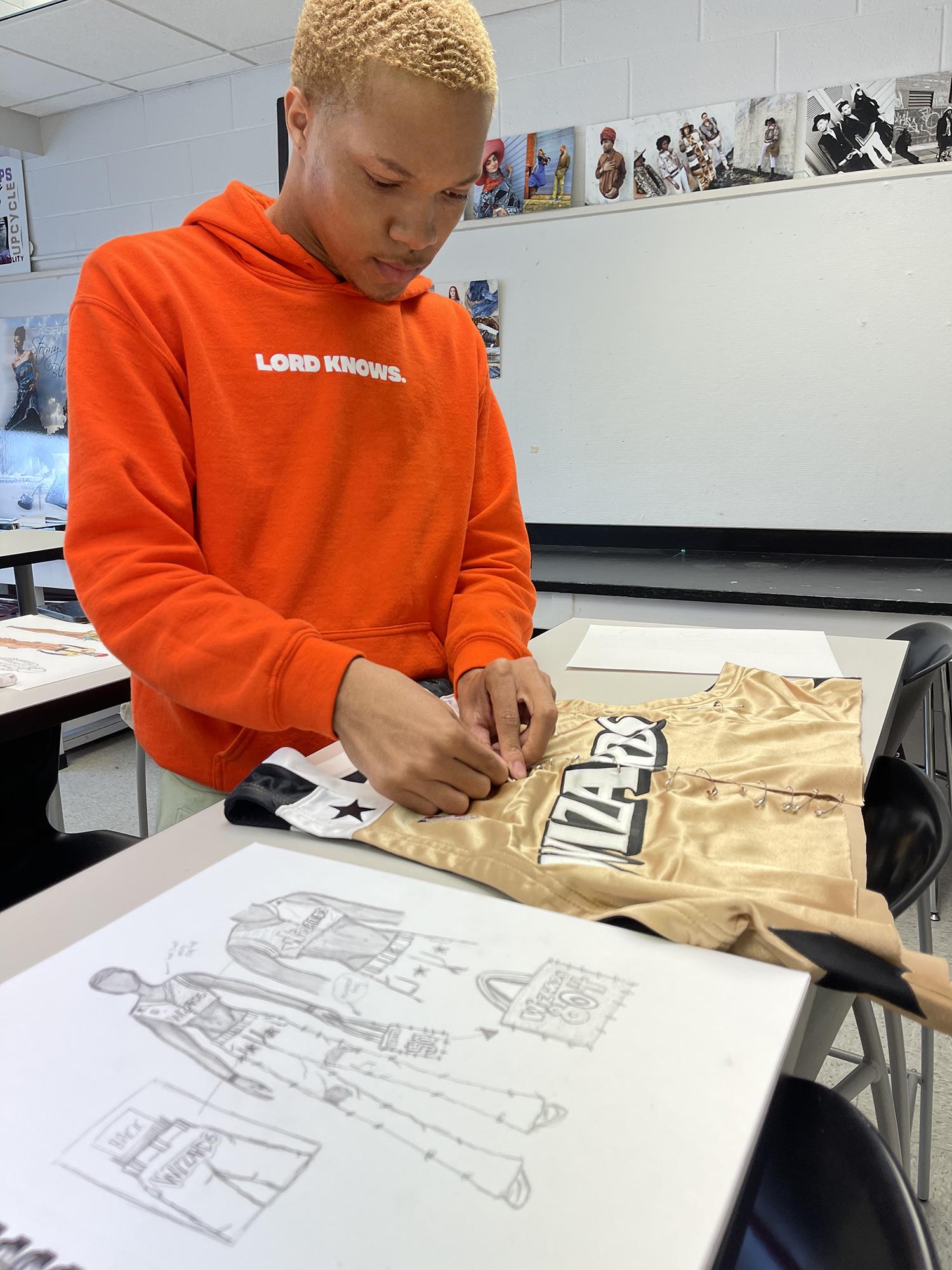
Taylor graduated from Howard with a master’s degree in electronic studio when she worked in graphic design and launched her own company, Taylor Made Designs. Her academic journey came full circle in 2011 when she became a master instructor in Howard’s art department. In the sustainable fashion space, she is most excited about the metaverse. During the pandemic, she led a digital fashion show and is currently working on exclusive NFT drops with accompanying wearable garments.
“I enjoy sharing the knowledge I have in the field of fashion and design,” she says. “Now with technology really being in the forefront of fashion—it's even more rewarding.”
The youthful teacher with a mane of natural hair has a colorful resort wear collection inspired by Miami Beach and one of her signature fabrics is made from a splash painting she did as a child. Her ethical fashions have also graced red carpets at the BET Awards and Black Girls Rock and are a staple at D.C. Fashion Week. She credits her students with letting her know what’s “poppin’” in fashion.
“My students are the ultimate trail blazers,” says Taylor. “I learn every day from them to be on task and to never let up no matter what it may be—storm or sunshine.”


